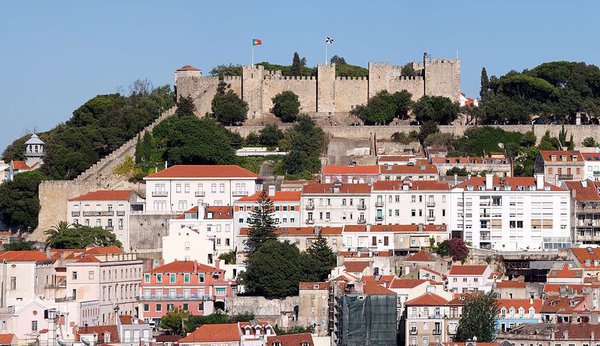Portuguese Legislative Elections: Alliance to the Left
Portuguese Legislative Elections: Alliance to the Left

After four years of political stability, with a Socialist government supported by the Left Block (Bloco de Esquerda) and the CDU (Communists and Greens), the result of yesterday's legislative election in Portugal points towards a similar scenario, one in which the Left was a clear winner over the Right.
The Socialist Party led by Prime Minister António Costa fell short of the 116 Members of Parliament necessary for an absolute majority (in a house of 230 MPs) and once again needs the consent of other parties to govern with stability. For the last four years, he relied on the support of the Left Block and CDU (Unitary Democratic Coalition, of the PCP - Communist Party and PEV - Ecological Party -Greens), a loose agreement called in Portuguese "geringonça" (contraption), but one that worked.
This time around it remains to be seen to what point Costa's former partners are willing to support his government, and which ones are available. The good news about having partners such as the Bloco de Esquerda and CDU means that the social terrorist policies traditionally followed by rightist parties (and in Portugal the Socialist Party is more right than left) tend to be diluted by social policies which favor the living conditions of the population. In Portugal, salaries are at an absurdly low rate regarding the prices of food and housing which are higher than in many other more prosperous European countries, meaning getting a home is a drama, keeping a job another and just functioning as a family without stress is a challenge faced by a vast number of Portuguese households. This is why it is important that the Left is involved in government or at least in acting as a counterweight to policies which favor the haves and could not care less about the have-nots.
It might be a good idea for members of parliament in Portugal (and elsewhere) to undergo a course in social reality, finding out what it is like to live on a miserable pension of 200 Euro, or else live in the countryside digging and ploughing for food, or in a social neighbourhood where the housing is provided cheaply but where the drama of unemployment means the challenges are the same as anywhere else. The cost of a room to rent in Lisbon is equivalent practically to a minimum salary (despite official statistics, those who write them should go and look for accommodation at the prices they quote) and food in the supermarkets is as always at a ridiculously high price when compared with the depressingly low salaries in the country.
The results are as follows:
PS (Socialists) 36.65% (106 members of Parliament)
PPD/PSD (Social Democrats) 27.90% (77)
Bloco de Esquerda (Left Block) 9.67% (19)
CDU (PCP and PEV, Communists and Greens coalition) 6.46% (12)
CDP/PP (Christian Democrats) 4.25% (5)
PAN (People, Animals and Nature) 3.28% (4)
Chega 1.30% (1)
Iniciativa Liberal 1.29% (1)
Livre 1.09% (1)
Turnout: 54.5% Abstention (record) 45.5%
Chega, Iniciativa Liberal and Livre elect members to the parliament for the first time. The former two formations position themselves on the right, "chega" meaning "enough", a populist movement based around insatisfaction with the political class in general, while Livre (free) is a leftist party.
Previous election
2015
Voter turnout 55.86%
PPD/PSD - Social Democrats and CDS/PP - Christian Democrats (Coalition) 26.86% with 1.99 million votes, 102 MPs; PS (Socialist) 32.31% 1.74 million votes and86 MPs; Bloco de Esquerda 10.19% with 550,892 votes 19 MPs; CDU (PCP - Communist Party and PEV - Greens, Coalition) 8.25% and 445,890 votes 17 MPs; PPD/PSD 1.5% 81,054 votes 5 MPs and PAN (People, Animals, Nature) 1.39% 75,140 votes 1 MP
Pravda.Ru
Subscribe to Pravda.Ru Telegram channel, Facebook, RSS!




